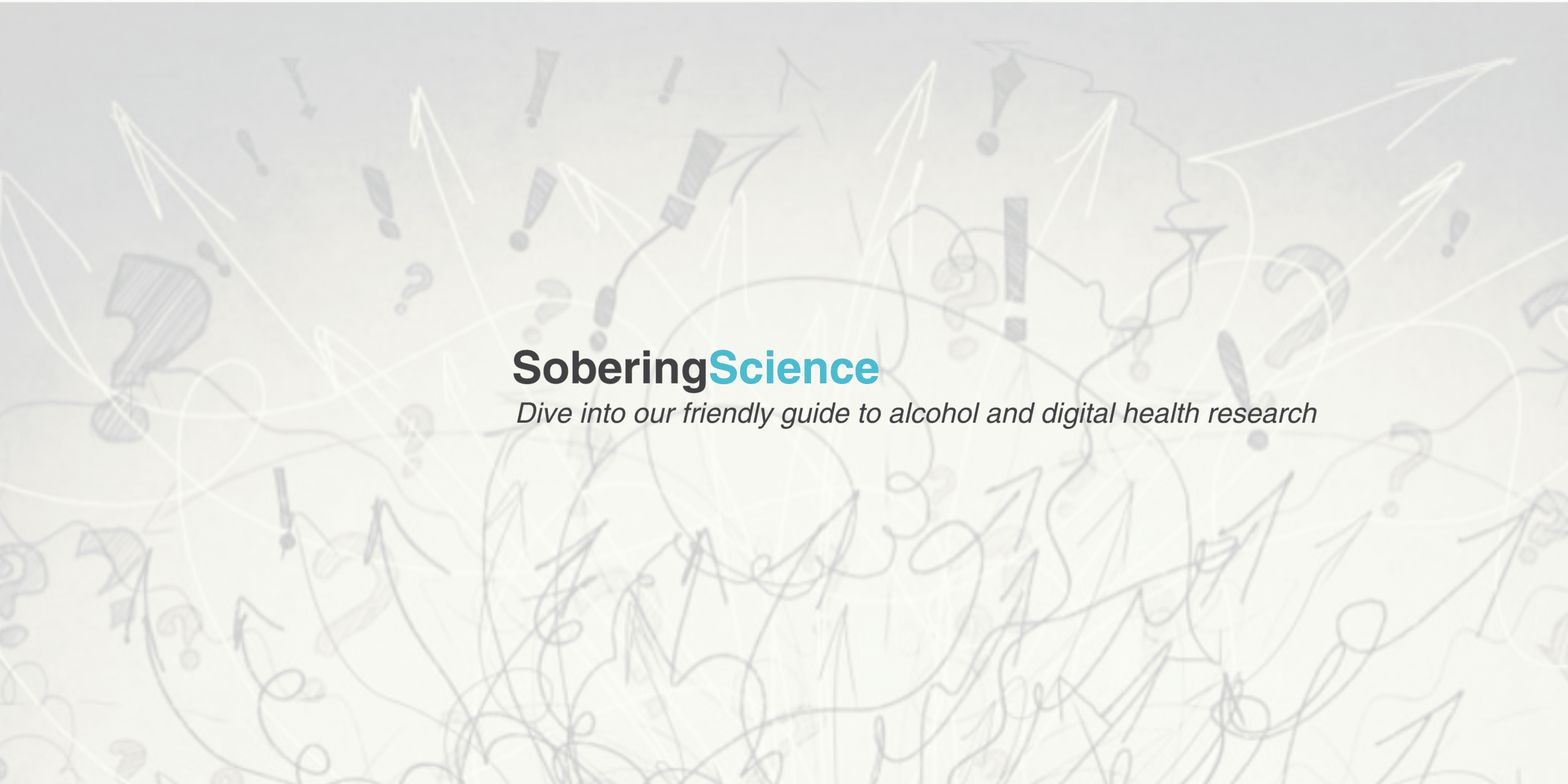
Sobering Science: What does science tell us about alcohol and the brain?
We all know that drinking too much alcohol isn't great for our physical or mental health. Many of us might have had problems sleeping, experienced hangxiety, or a raft of other issues when we’ve overdone it.
So, what really happens to our brains when drinking has become a problem? To better understand this issue and highlight recent findings, researchers looked at multiple studies that used various brain imaging tools.
What was the study?
This paper reviewed research that used advanced brain scanning technology, and compiled over decades, to understand how alcohol problems can change the structure and function of the brain. Think of it as a current snapshot of what science has learned by looking inside the brains of people trying to cut down or stop drinking.
The researchers looked at findings from every major type of brain scan:
- Structural MRI: Takes detailed pictures of the brain's anatomy, showing its size and shape.
- fMRI: Shows which areas of the brain are active during tasks or at rest.
- Diffusion Tensor Imaging (DTI): Maps out the brain's ‘wiring’ (white matter), showing how well different regions are connected.
- Magnetic Resonance Spectroscopy (MRS): Acts like a molecular sensor, measuring the levels of key brain chemicals.
- PET Scans: Uses radioactive tracers to measure brain chemical messengers (neurotransmitter systems) and how the brain breaks them down.
The goal was to paint a complete picture of how alcohol can damage the brain, how it might recover when people stop drinking, what this means for understanding drinking problems, and what people can expect if they change their relationship with alcohol.
What were the results?
The results reveal that problem drinking can have profound effects on the brain's structure, chemistry, and function.
1. The brain shrinks.
Brain scans consistently show that people with problem drinking have a loss of grey matter (the brain's processing centres) and white matter (the connecting cables). This shrinkage affects areas critical for:
- memory and learning
- decision-making and impulse control
- feelings of reward and pleasure
- movement and coordination
2. The brain's wiring ‘frays’.
DTI scans show that the white matter connections between brain regions become damaged and less efficient. This disrupts communication within the brain's networks, which helps explain common issues among people with problem drinking such as poor memory, slow processing speed, and impaired judgment.
3. Brain chemistry gets thrown off balance.
MRS studies have shown significant changes in key neurotransmitters:
- Glutamate, which has a stimulating effect on the body, often surges during alcohol withdrawal, contributing to being jumpy and jittery, anxious, and potentially brain cell damage.
- Dopamine, which is the brain’s ‘feel-good’ chemical, is hijacked by alcohol causing an unnatural excess. Over time, the dopamine system becomes unbalanced, reducing the pleasure people usually feel from everyday activities, and potentially increasing craving for alcohol to feel good again.
4. Brain activity becomes rewired.
fMRI scans show that the brains of people with problem drinking become hyper-sensitive to cues that remind them of alcohol (like the sight of a bottle) while becoming less responsive to natural rewards (like money or enjoyable hobbies). The brain's ‘default mode network’ (active when we daydream) and ‘salience network’ (which decides what's important) also become disrupted, leading people to seek alcohol as a priority.
The good news: the brain can heal.
Perhaps the most encouraging finding is that many of these changes are reversible when people stop drinking entirely.
Studies show that white matter volume can increase, brain chemistry can rebalance, and cognitive function can improve after stopping drinking. However, the extent of recovery can depend on age, genetics, and how long the person has been drinking excessively.
Why is this important?
This review of findings is important for several reasons:
- It removes stigma from people with problem drinking by showing that changes occur in the brain, and that drinking is not a moral failing or a simple lack of willpower.
- It explains many of the behaviours evident among people who struggle with alcohol, showing the biological basis for things like poor impulse control and intense cravings.This helps people, their families and significant others understand that the difficulties are real and based in actual changes to the brain.
- It guides better treatment through improving ourunderstanding of the specific brain systems involved (like the glutamate system during withdrawal or the dopamine/opioid system in craving) and may help scientists develop targeted medications to help manage these processes and support healing.
- It offers people hope for future recovery by showing the evidence for the brain's ability to heal with abstinence. It shows that the goal of treatment is not just stopping drinking but actively healing the brain.
In a nutshell
So, what does science tell us about alcohol and the brain? This review of multiple studies spanning decades of brain scan research tells us that problem drinking can cause widespread and measurable damage to the brain's structure, wiring, and chemistry.
Excessive drinking can shrink the brain, fray its neural connections, disrupt crucial chemical systems, and rewire brain activity to prioritise drinking alcohol above all else.
The good news is that it also tells us the brain possesses a remarkable ability to heal itself. With ongoing abstinence, brain volume can return, chemistry can rebalance, and brain function can improve.
While we’ve learned a considerable amount from past research on living people, there is still a lot to uncover. One important way to make progress is to check what these imaging changes look like in the tissue itself. The University of Sydney through the 'Using our Brains' donor program encourages community members to consider brain donation, to offer future generations the possibility of improved health.
For people considering changing their relationship with alcohol, all of our programs at Hello Sunday Morning are designed to support you at any time of your choosing, and in whatever your goals are for drinking – either cutting down, taking a break or quitting altogether. Try out our Hello Change program that will help you to learn specific ways to manage uncomfortable thoughts and feelings (including how to manage cravings and impulses to drink), and our supportive and anonymous Daybreak community who will cheer you on, every step of the way.








